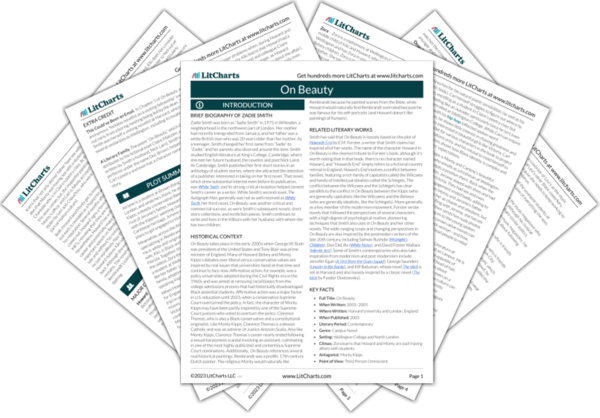AI ToolsNew
Tools to make learning and teaching easier
|
Previous
The Anatomy Lesson: Chapter 5
|
On Beauty: The Anatomy Lesson: Chapter 6 Summary & Analysis |
Next
The Anatomy Lesson: Chapter 7
|


Upgrade to unlock the analysis and theme tracking for all of On BeautyOn Beauty!
Get LitCharts A+